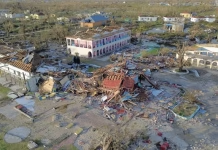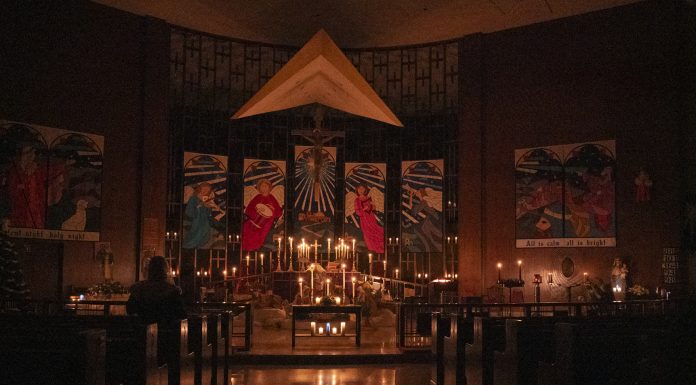Column by Justin Kirkland
Known for its valiant warriors and the strength of its military, the ancient city of Sparta continues to hold mythological status in our modern world. However, what many of us may not know is that while it’s easy to imagine this thriving militaristic society as having strong defenses such as fortification walls, they actually didn’t have any walls protecting their city at all. When the visitor Antalcidas asked the king of Sparta why this was, he responded by pointing to the citizens saying, “These are the Spartan walls.” They had made a tradition of pride, not only in their military, but in everyday life, being the living brick and mortar – each citizen making up the walls of the city. The Church, according to Saint Peter, isn’t much different. He tells us in 1 Peter 2:4-10 that each of us are “living stones,” chosen by God to build up the Church. This is why the Catechism p. 782 says the Church is the “People of God,” not just one specific person or building. But if we are called to be living stones, we are challenged to be full participants in the faith. We cannot be backseat drivers, simple observers, or idle spectators. If we aren’t trying to be fully alive in our faith, and we aren’t centered on Christ and the cross, what would be the point?
In order to participate, we have to know why we should in the first place. The reasoning is simple: God desires us to. He wants to give us His love, mercy, and grace, which can only be received when we actively accept it through our participation in the Christian life. This is primarily done through the Church and Her Sacraments, and through prayer. This is similar to any gift offered to us- we have to actively say yes in receiving it. As He does with all generations, He wants to pour out these gifts on His people. This may look different for each one of us, but our God is a Father who loves more then we can imagine, and wants us to receive that love.
In order to receive, we have to be present, which is the main way we become these living stones. Vatican II called all of the faithful to become active in their faith, and according to Sacrosanctum Concilium P.14, we must start by being “fully conscience.” To the best of our ability we have to be fully conscience, or present, at Mass and in our prayer life, putting God as our focal point. It doesn’t necessarily mean we have to volunteer at every fish fry or church picnic and it doesn’t necessarily mean we have to be doing these grandiose things like baptizing an entire continent as Saint Francis Xavier did. Though, of course, these things are important and we should do what we can to volunteer, it’s important to realize our salvation isn’t given to us through these of actions. Depending on where we are in our spiritual lives, participating in our faith can simply mean sitting with our Lord and doing all we can to focus on His presence. This small action could mean experiencing Him in a new way through Confession or the Eucharist. We can take a page out of Saint Therese of Lisieux’s book and do the little things of everyday life with extraordinary love.
These small yet profound encounters we are able to have with God naturally push us to proclaim His glory through our words and actions. Anyone who has experienced an inkling of love knows, when you feel it deep inside of your heart, you can’t help but to let it radiate from you and shout it from the rooftops! We need the Church in order to encounter this love, but the Church needs us just as much. Like any building, if one stone falls away the entire structure is due to collapse. Just think how it would transform our world if every stone of the Church became alive and in love with our Lord. We should be reminded of the quote attributed to Saint Catherine of Siena, “Be who God meant you to be and you will set the world on fire.”
Justin Kirkland is the Communications Coordinator for the Diocese of Altoona-Johnstown and a graduate in Theology from Franciscan University of Steubenville.






























